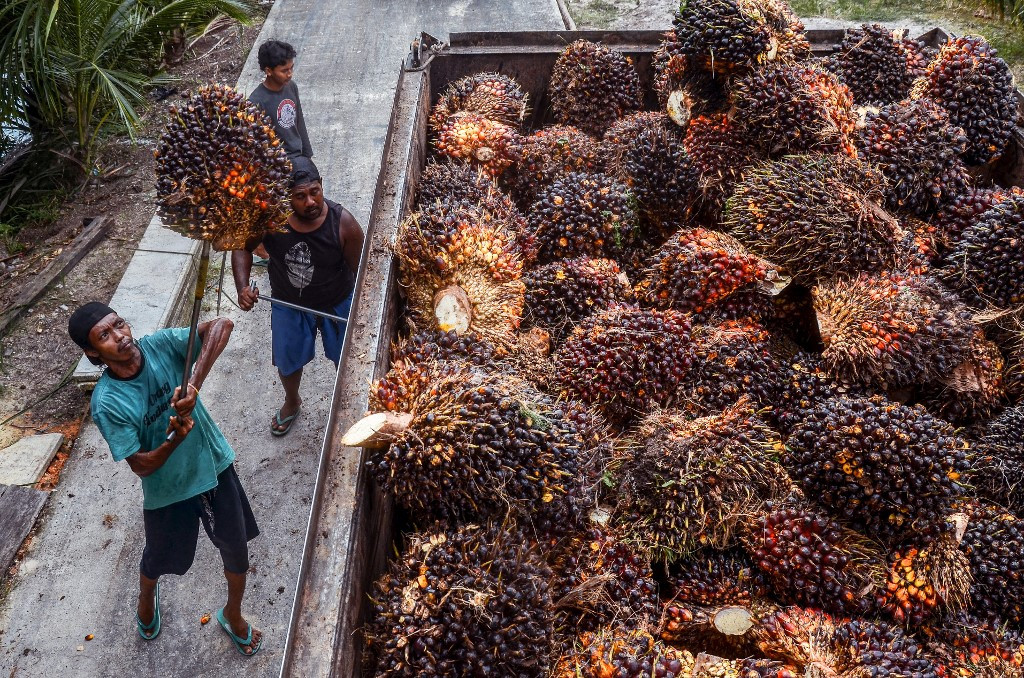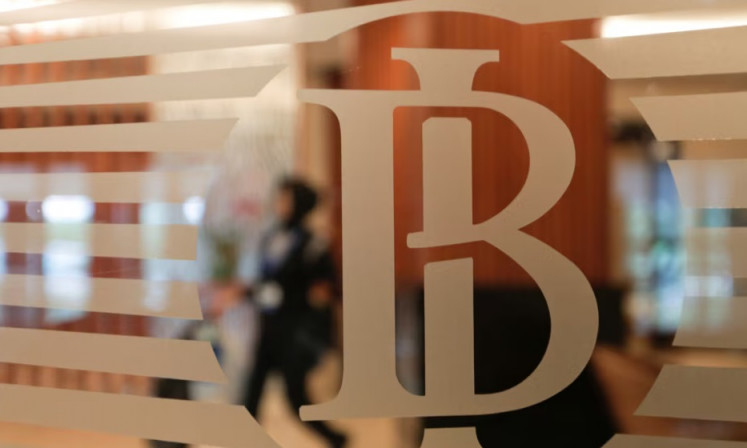Popular Reads
Top Results
Can't find what you're looking for?
View all search resultsPopular Reads
Top Results
Can't find what you're looking for?
View all search resultsFor now Indonesia-EU ties ʻsafeʼ despite ongoing trade disputes
When it comes to the trade disputes with the EU, President Jokowi is defiant.
Change text size
Gift Premium Articles
to Anyone
P
resident Joko “Jokowi” Widodo’s “blunt” adamance to win over the trade dispute with the European Union over palm oil and nickel could be useful for advancing Indonesia’s agenda, analysts suggest, though they also warn that the rift must be managed well to avoid injuring both their future economies and the diplomatic relationship.
As each other’s strategic economic partner, any failure to mitigate existing disputes will only drag out the glacial progress on the Indonesia-EU Comprehensive Economic Partnership Agreement (I-EU CEPA), with some suggesting that more productive dialogue is needed to keep ties intact.
Southeast Asia’s largest economy has led an uneasy yet robust partnership with the Euro bloc that has seen their interests conflict, with Brussels eager to impose its brand sustainability-forward policymaking on Jakarta at the expense of Indonesia’s urgent need to industrialize.
The past few months have seen the two sides embroiled in a public rift following the World Trade Organization’s ruling in November against Indonesia’s ban on raw nickel ore exports, a decision the EU has challenged. The dispute further complicated an already complex relationship rooted in disagreements over Indonesian palm oil production in relation to the European Green Deal, which restricts imports failing to meet EU sustainability requirements.
When it came to the trade disputes, Jokowi was defiant. The President had drawn parallels between the WTO ruling and colonial-era forced labor, and delivered sharp remarks at the EU-ASEAN Summit in December.
Brussels has shied away from any sharp retorts, preferring instead to stick to earlier talking points. The EU Mission to Indonesia plans to hold a press event soon.
But such bluntness may be necessary and would not necessarily wound diplomatic ties if it meant that both sides would open up going forward, said Riza Noer Arfani, an international relations expert from Gadjah Mada University.
“The EU is a benchmark setter. There is a clear power inequality between them and Indonesia, which requires the latter – as a developing country speaking to a developed group of countries – to be as frank and bold as possible,” Riza told The Jakarta Post on Monday.
“At the same time, the remarks must serve to create opportunities for more conversations. Otherwise, it can turn into a cycle of constant retaliation; as is with the EU’s palm oil import rules and Indonesia’s nickel export [ban].”
Mutual gain
With the advancement of economic cooperation a top priority for Indonesia this year, economists emphasized the importance of the EU as one of Jakarta’s most strategic partners. While disagreements are bound to occur in any relationship, the latest developments on palm oil should ideally be resolved as soon as possible, it said.
“Palm oil has been a big roadblock to the I-EU CEPA, which has dragged on for a very long time. [...] There are consequences; the longer we negotiate, the more we lose our economic potential,” said Dandy Rafitrandi, an economics expert at the Centre for Strategic and International Studies (CSIS).
Without the CEPA in place, Dandy suggested, Indonesia may lose out to countries like Vietnam and Singapore, which thanks to successful bilateral agreements with Europe would be more attractive to foreign investors. Jakarta’s competitiveness would then further diminish as heavier tariffs could stand in the way of future trade, he warned.
But Jakarta is not the only one that loses out. The 22 EU member states who stand to benefit from engaging the Indo-Pacific may lose a key partner in the region.
“The EU must approach Indonesia as if it needs the partnership, which it does, as Jakarta increasingly becomes more geopolitically strategic. If it doesn’t, [the bloc] won’t be able to catch up in the region,” said Dandy.
Other observers, like Dinna Prapto Raharja, founder of the Synergy Policies independent think tank, say that the EU is in no position “to negate Indonesia as a partner”, considering how the bloc needs to find ways to counter its economic turmoil and an aging population.
Homework
Dinna, who believes Jakarta should take a more prudent approach in engaging the EU, insisted that it start to develop a substantive diplomatic pathway with Brussels. This would include resolving long-standing issues in contested areas, such as human rights abuse in the palm oil sector. Failure to do its homework right will give Europe more leverage, she argued.
“Diplomacy will not be successful if the sectors promoted remain blemished and not handled seriously. EU countries are fully aware of this. [...] It is my opinion that our foreign statements are too brazen, considering we still have yet to take a bold step to fix our own domestic issues,” she said.
A few weeks ago, alongside Malaysian Prime Minister Anwar Ibrahim, Jokowi announced that the two nations plan to fight palm oil “discrimination” via the Council of Palm Oil Producing Countries (CPOPC).
On Jan. 12, Kuala Lumpur announced it was considering a halt in edible oil exports to the EU due to the new restrictions set out in the EU Green Deal.
Environmental activists have censured the two countries’ efforts to fight this deal, saying that it would only injure any urgent effort to combat deforestation.
Indonesia and Malaysia are the largest oil palm producers in the world.










